Mariko’s “leafless branch” poem in Shōgun intentionally uses winter imagery despite it being spring in Japan, sending a cryptic message to Ochiba.
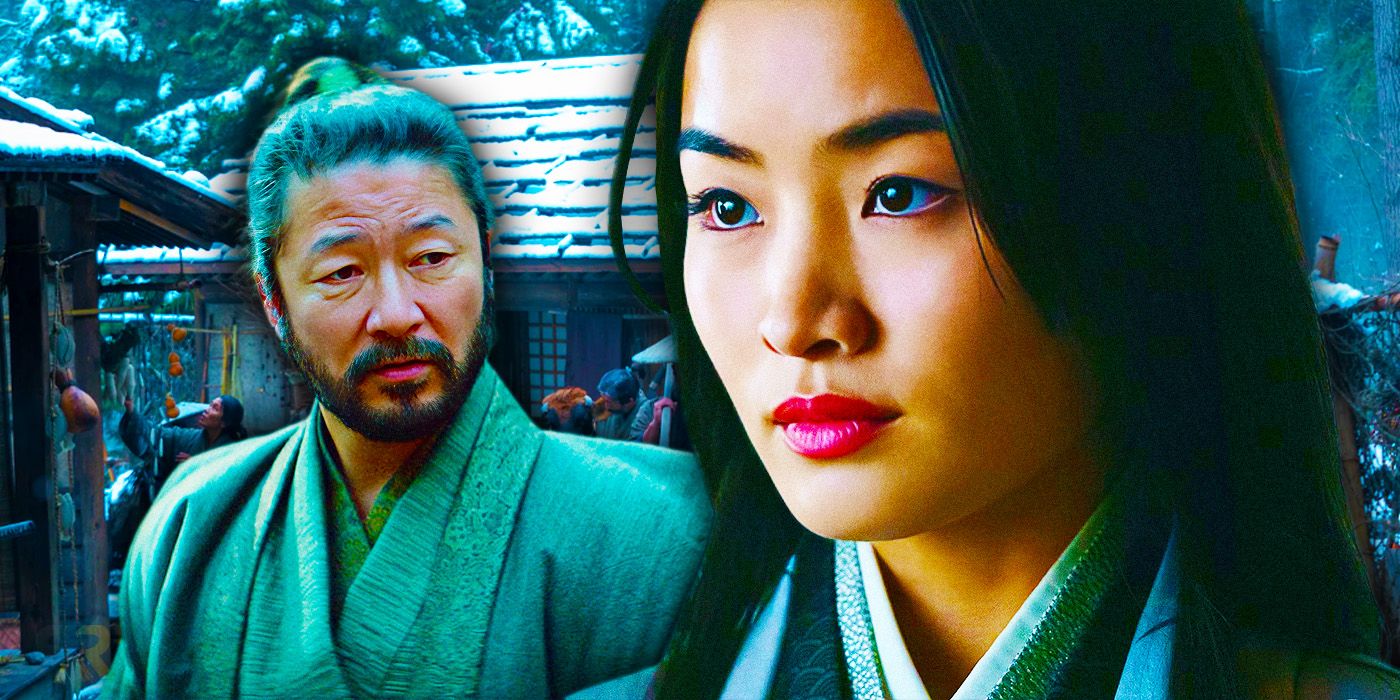
Lady Mariko delivers part of an original haiku during her reunion with Ochiba-no-kata in Shōgun episode 9. The penultimate episode of Shōgun saw Mariko completely drive the narrative with the clear objective of sending a message to Lord Ishido and Ochiba-no-kata in Osaka. Mariko, who had been mysteriously sent along to Osaka with Yabushige and Blackthorne, tells Lord Ishido and Ochiba-no-kata that she was ordered to return to Lord Toranaga in Edo at once. When she is met with opposition by Ishido’s warriors, she declares that she will commit seppuku for failing to obey Toranaga’s commands.
Based on its title “Crimson Sky”, Shōgun episode 9 was expected to feature the unfolding of Toranaga’s Siege of Osaka with his army from Edo. After suffering several great losses in the most recent Shōgun episodes, Toranaga appears to finally be in a position where he has the element of surprise on his side. Lady Mariko fulfilled her duty to Toranaga after being essentially held captive in Osaka by Lord Ishido, successfully cracking his inflated sense of authority. Mariko also reunited with her old friend Ochiba-no-kata in what became one of the most powerful exchanges between characters in the entire series.
The Deeper Meaning Behind Lady Mariko’s “Leafless Branch” Poem
If Ochiba is fallen leaves, then Mariko is the leafless branch
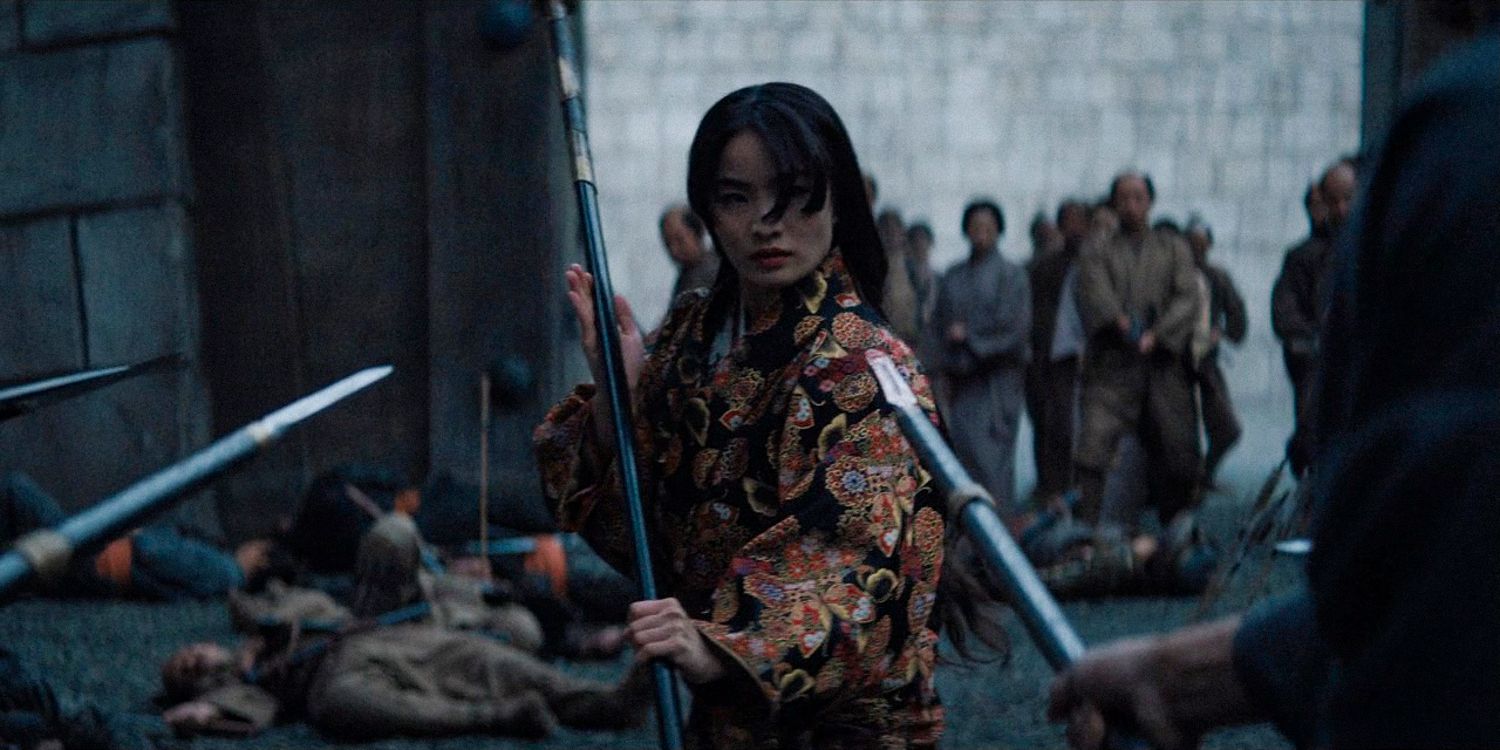
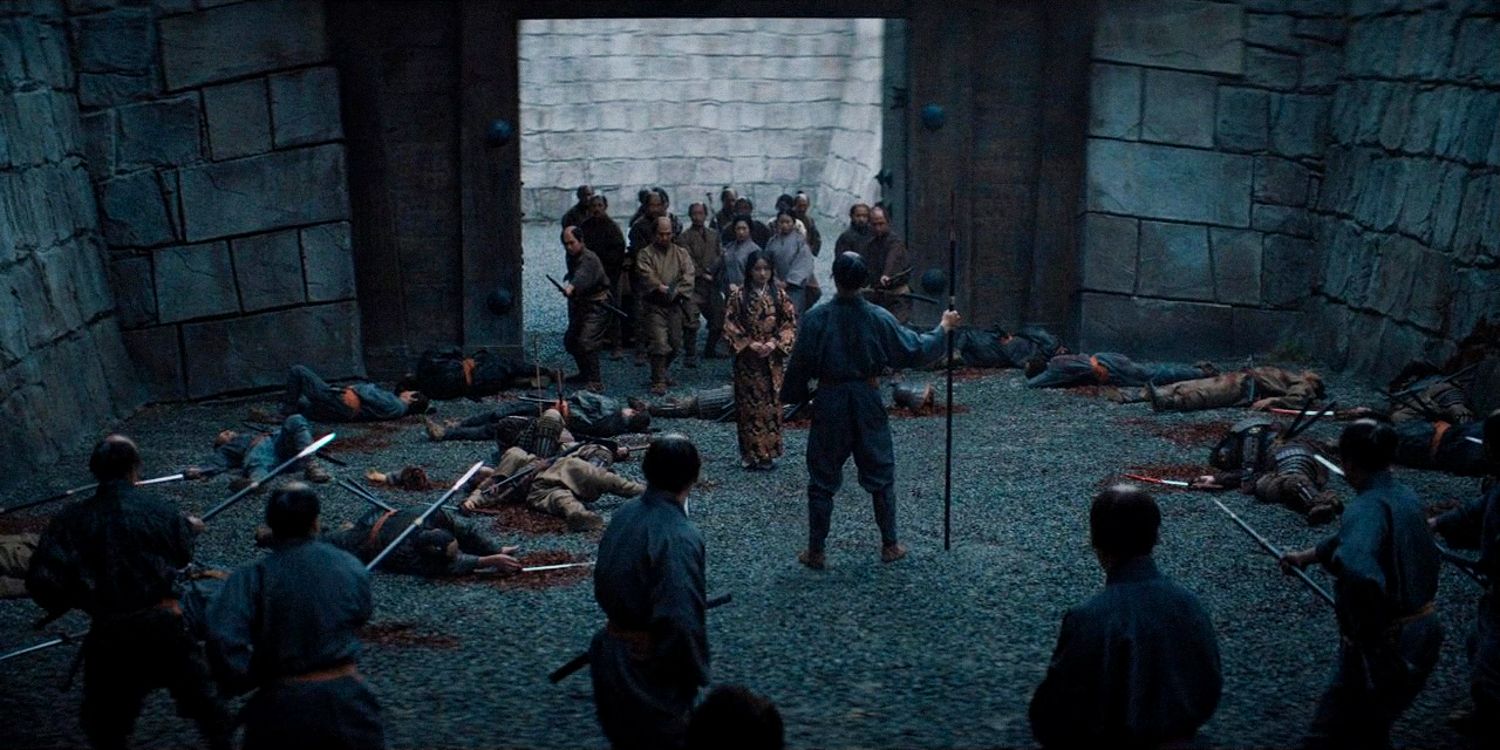
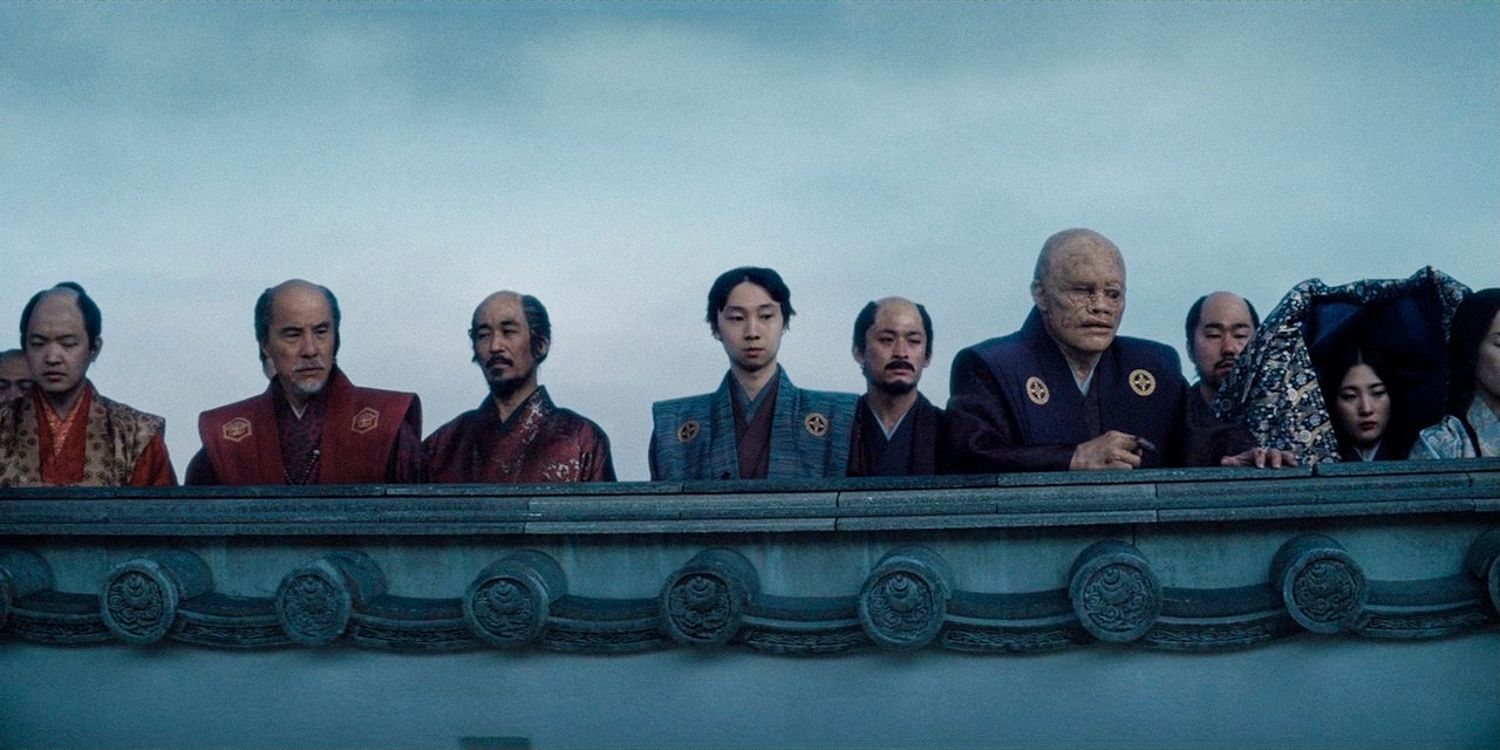
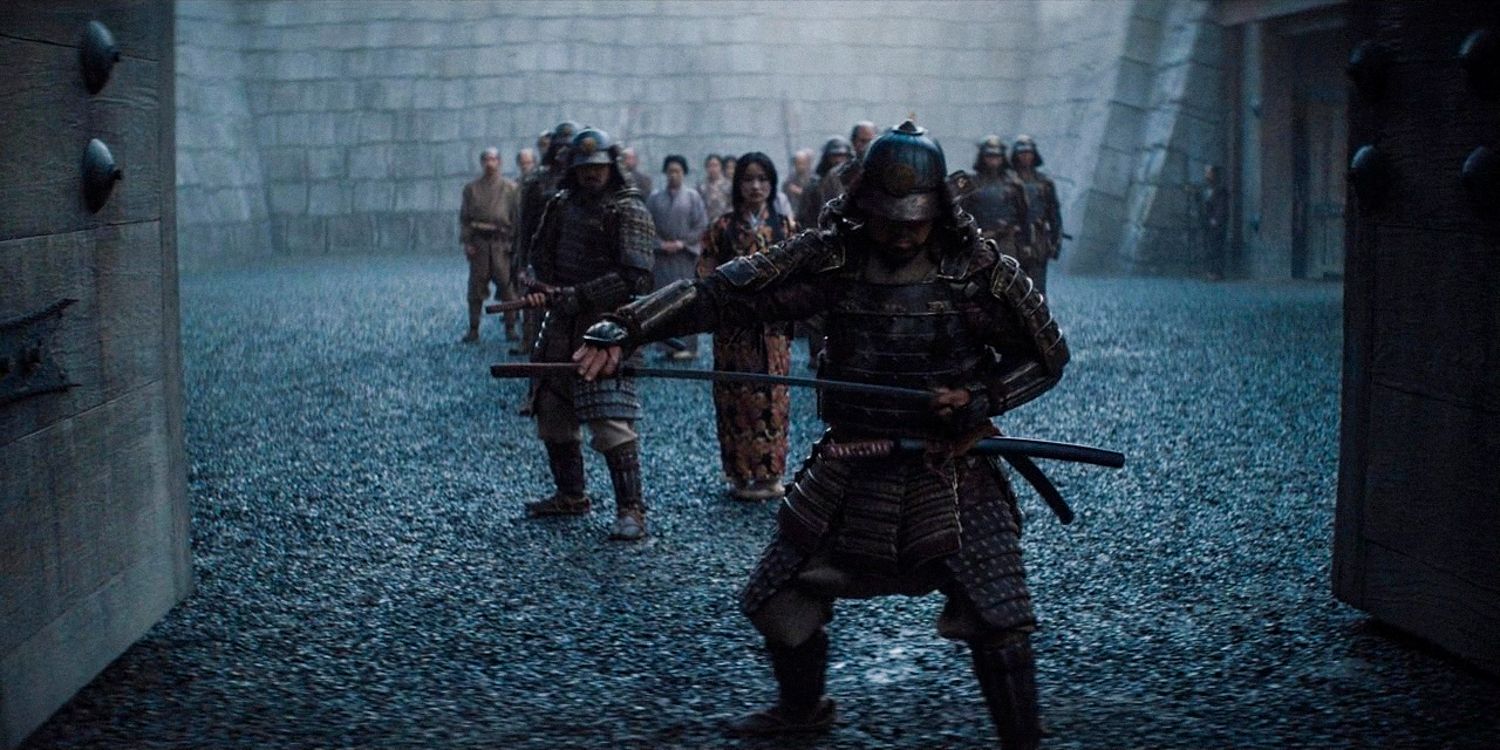
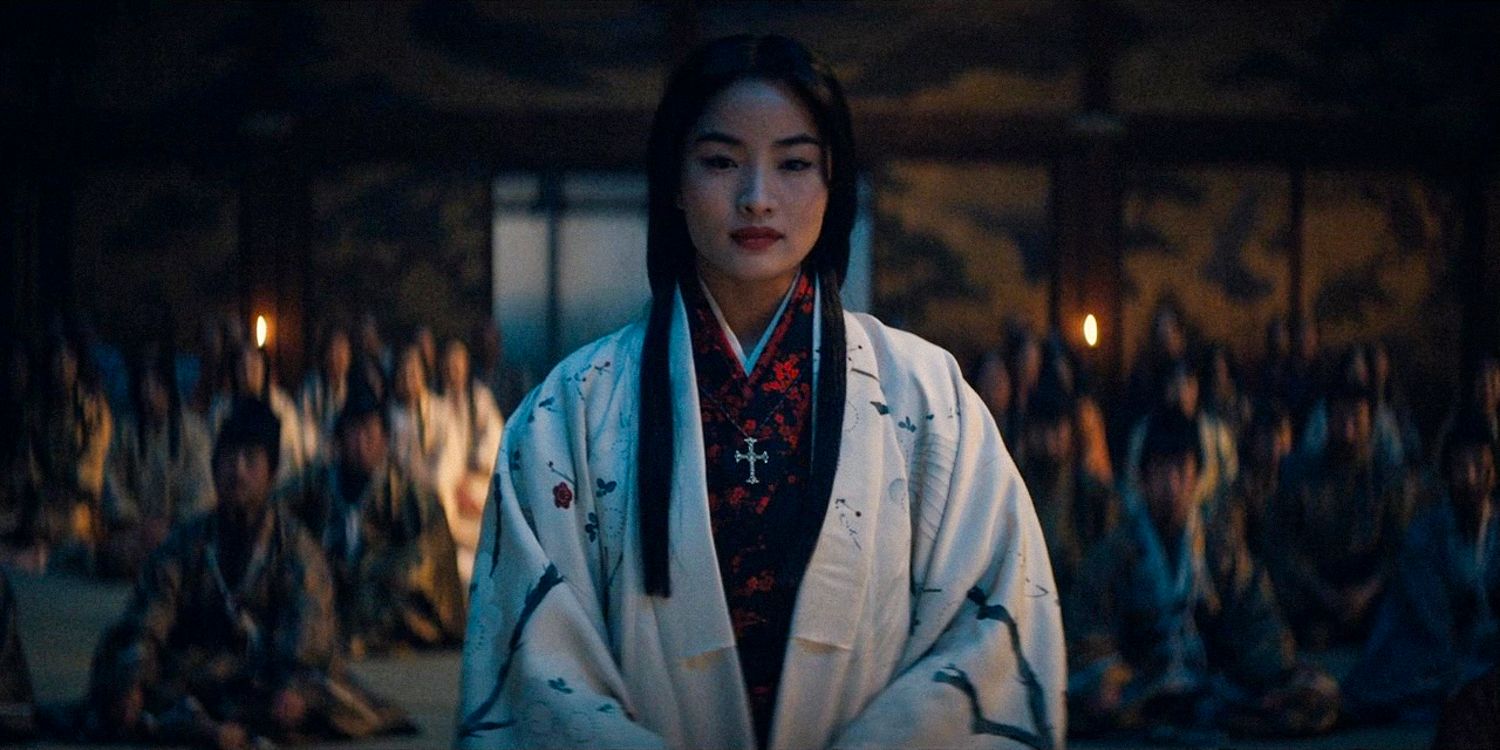
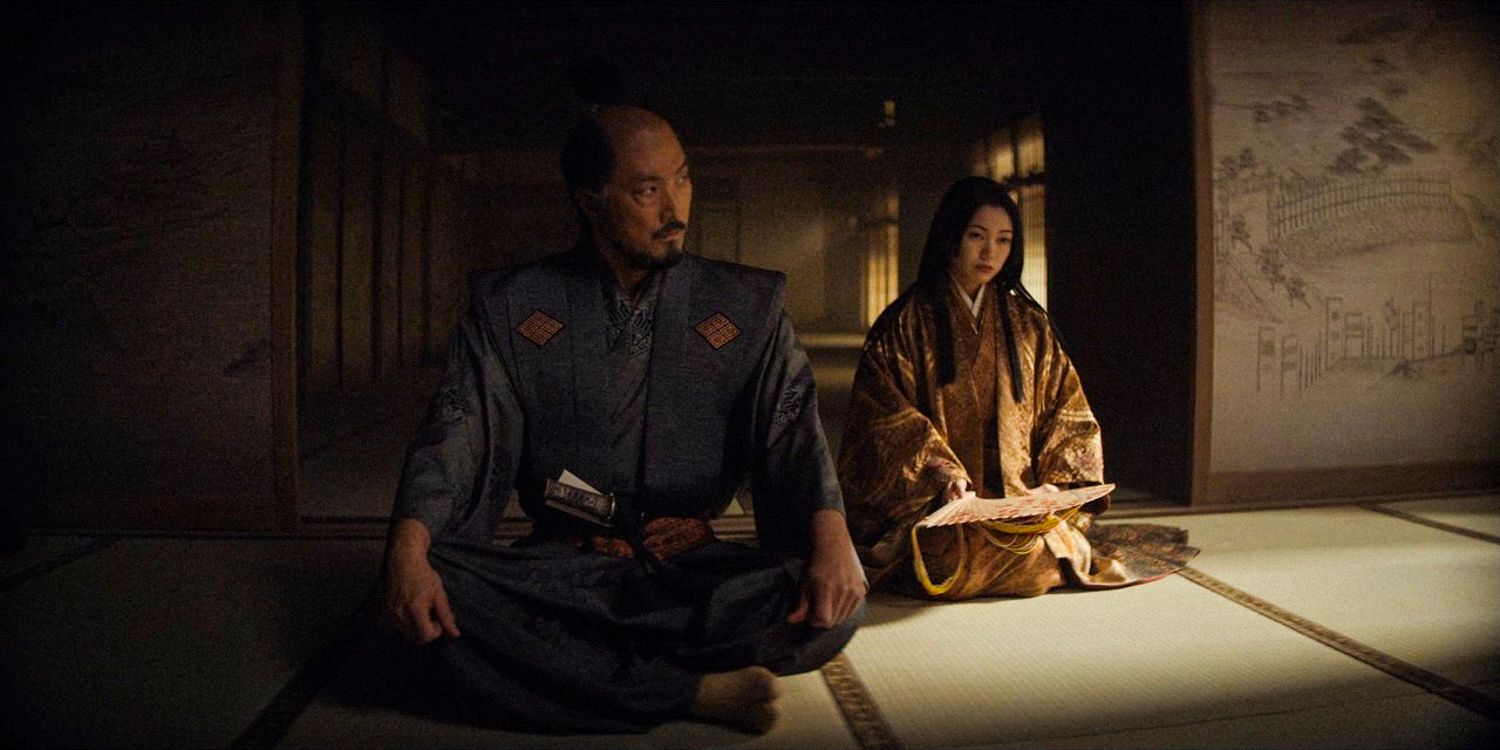
It’s clear that Mariko intended to target Ochiba with her words, considering that Ochiba’s name literally means ” fallen leaves. ”
Prior to Mariko’s shocking twist in Shōgun episode 9, Mariko starts an improvised poem after Ochiba-no-kata invites her to compete in a poetry competition in Osaka. Ochiba notes that Mariko had always been the shining student growing up, indicating that she still has a great deal of admiration and respect for her old friend. Mariko offers the first line of the poem after saying she will be unable to stay in Osaka long enough to actually participate in the poetry competition. The line reads, “While the snow remains / Veiled in the haze of cold evening / A leafless branch…“ and is left unfinished to be continued in the poetry competition.
Ochiba takes quiet note of the choice words that Mariko uses in the opening line of her poem, while Ishido looks genuinely pleased and impressed. It’s clear that Mariko intended to target Ochiba with her words, considering that Ochiba’s name literally means “fallen leaves.” Mariko’s poem also alludes to the flashback scenes of her younger years following her father’s great betrayal in which he killed Ochiba’s father and effectively disgraced Mariko’s family forever. “The snow remains” points to the ice that Mariko still carries in her veins from that experience. If Ochiba is fallen leaves, then Mariko is the leafless branch, indicating how they have naturally distanced themselves over the years.
Is “Leafless Branch” A Real Poem?
The poem seems to be a warning from Mariko to Ochiba
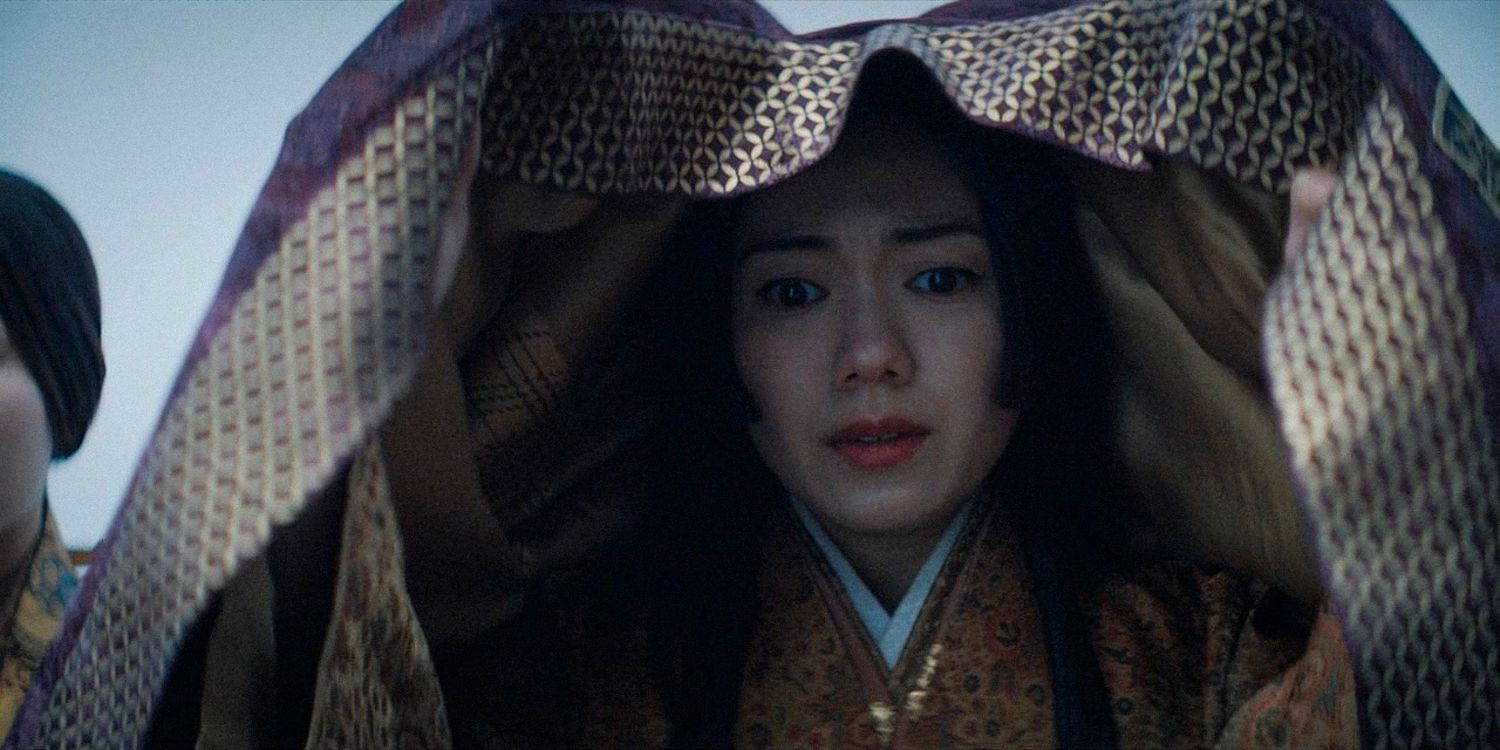
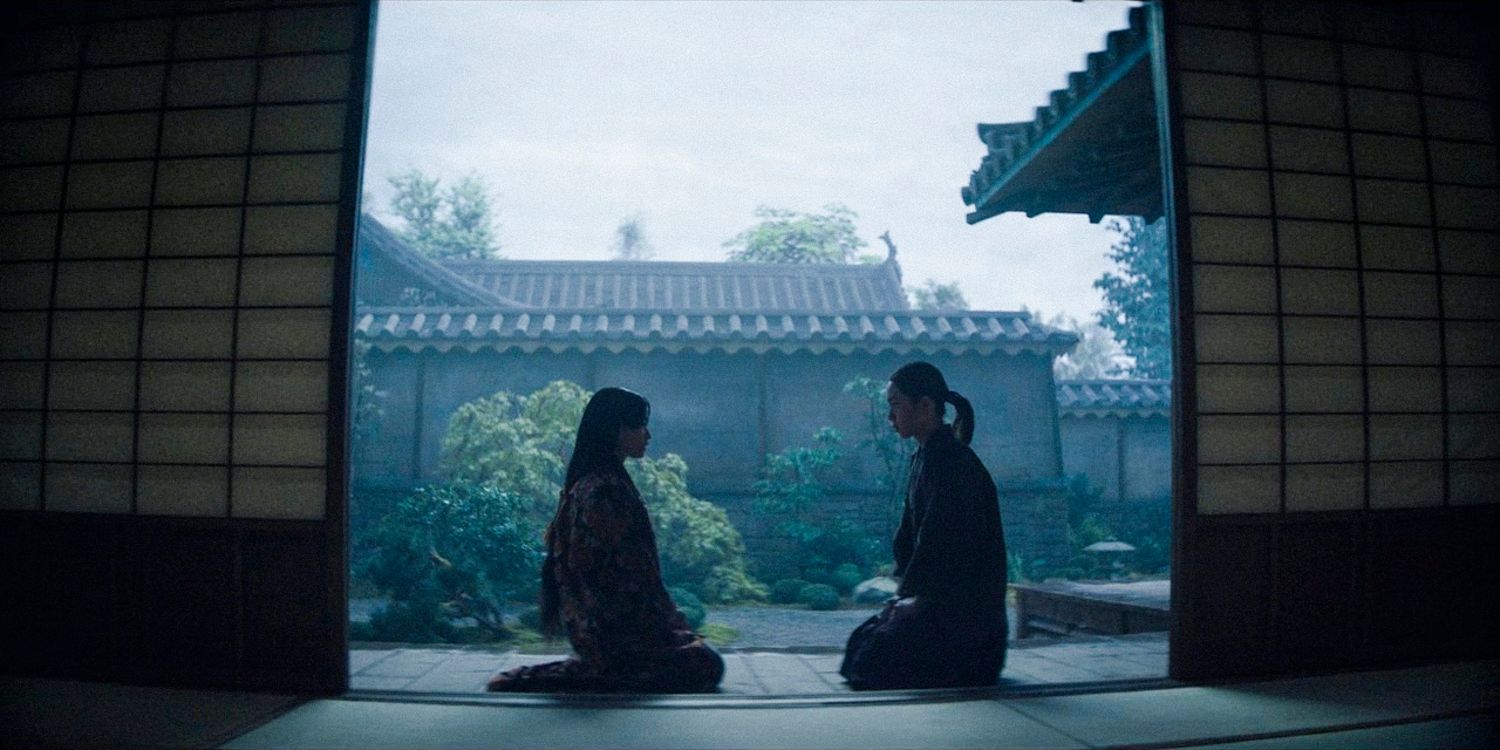
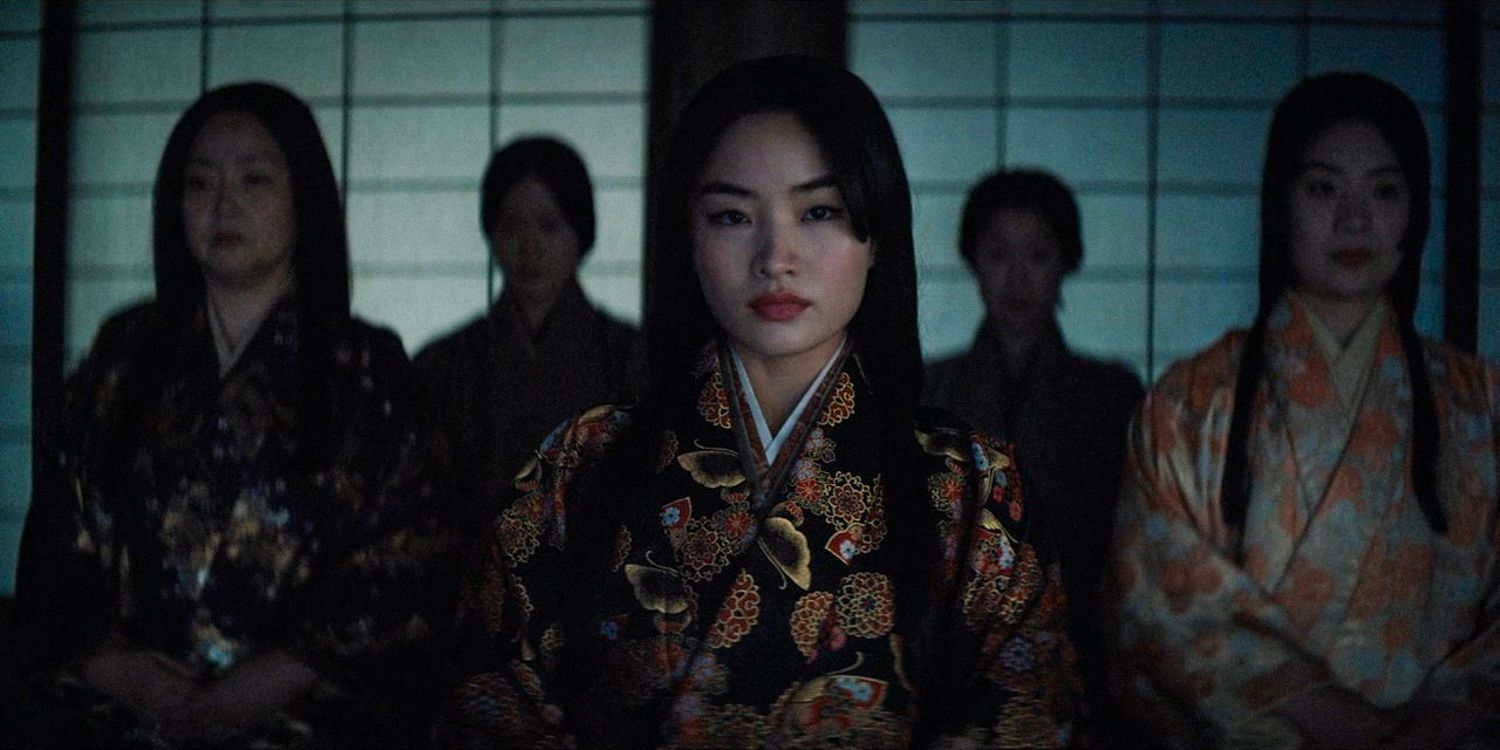
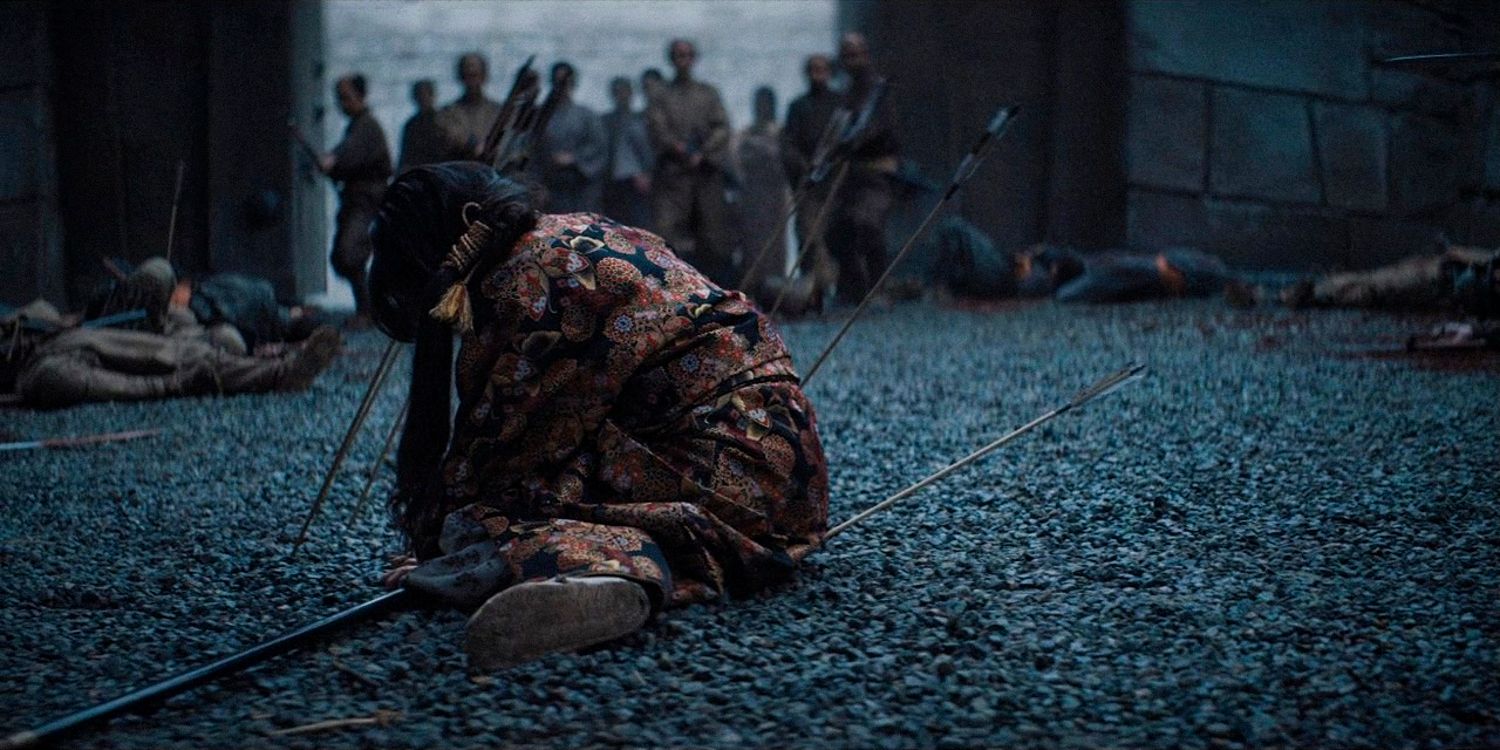
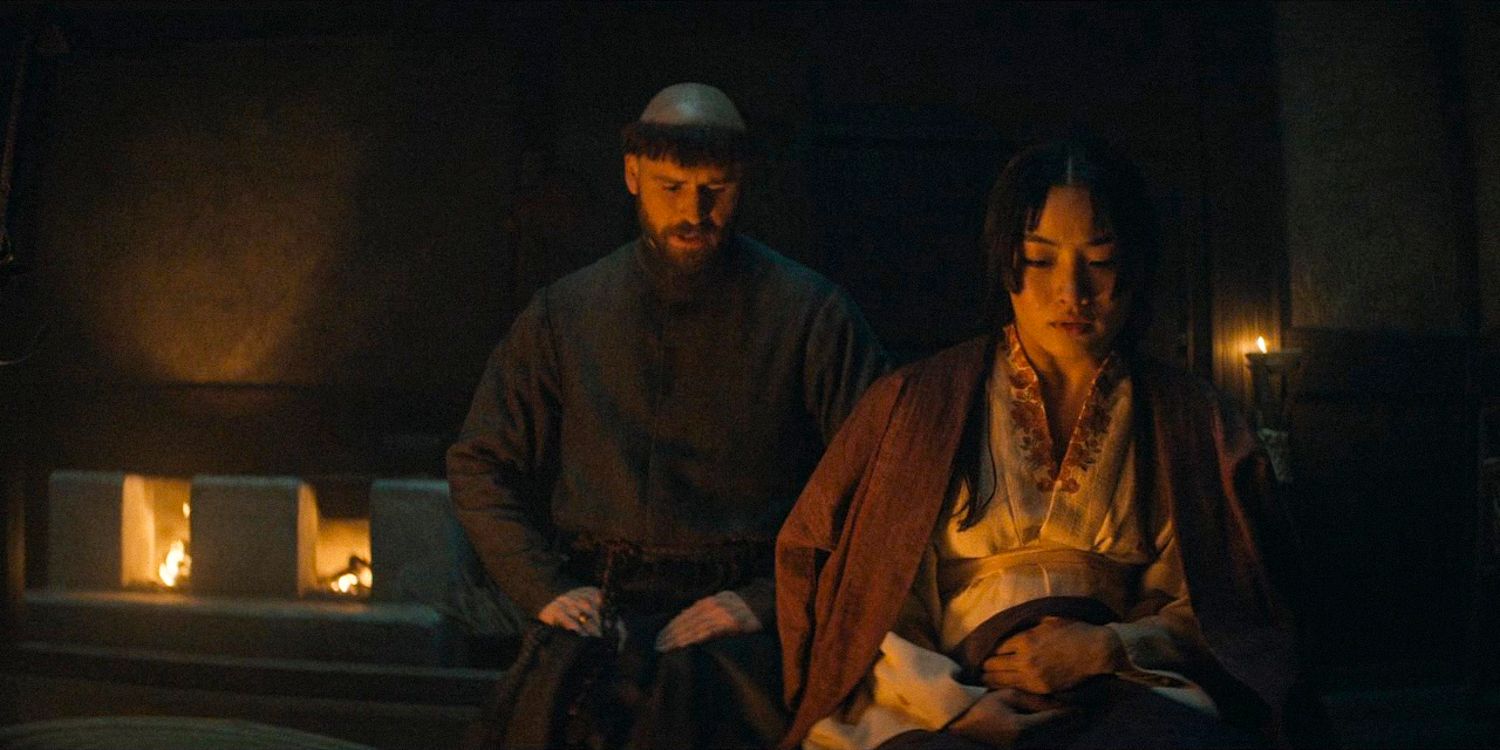
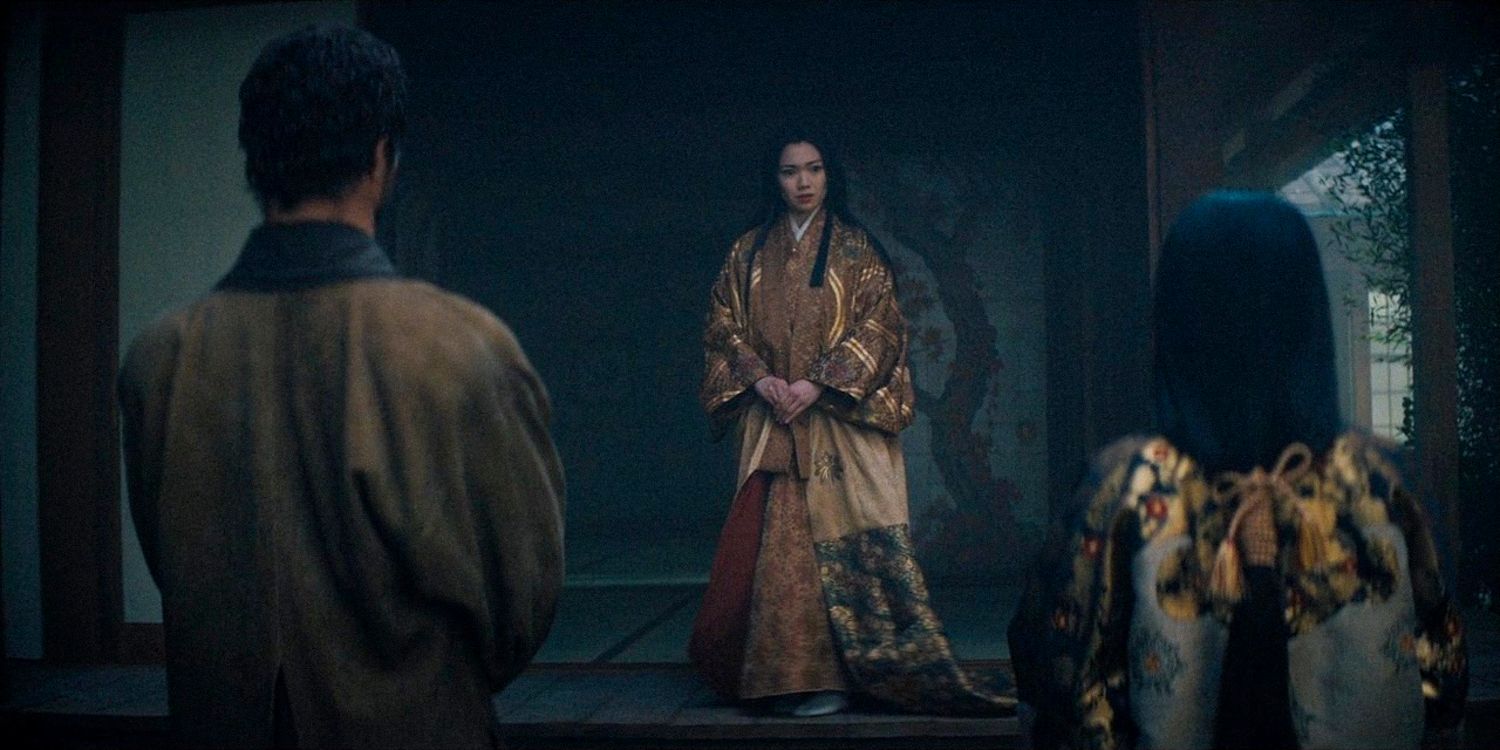
By Mariko referencing a leafless branch and winter, she is potentially trying to warn Ochiba of the winter-like “death” that is to come through Toranaga’s plans to become shogun.
The “leafless branch” poem in Shōgun does not appear to be taken from another source and was written specifically for the show. It acts as a perfect cryptic warning from Mariko to Ochiba, whose name meaning “fallen leaves” is reminiscent of the beautiful and scenic season of autumn. By Mariko referencing a leafless branch and winter, she is potentially trying to warn Ochiba of the winter-like “death” that is to come through Toranaga’s plans to become shogun without overtly saying it in front of Ishido. She is also potentially foreshadowing her own death in the episode if she is to be seen as the leafless and lifeless branch she speaks of.
Why Yabushige Calls “Leafless Branch” A Bad Poem
Yabushige cannot perceive the poem’s inner implications
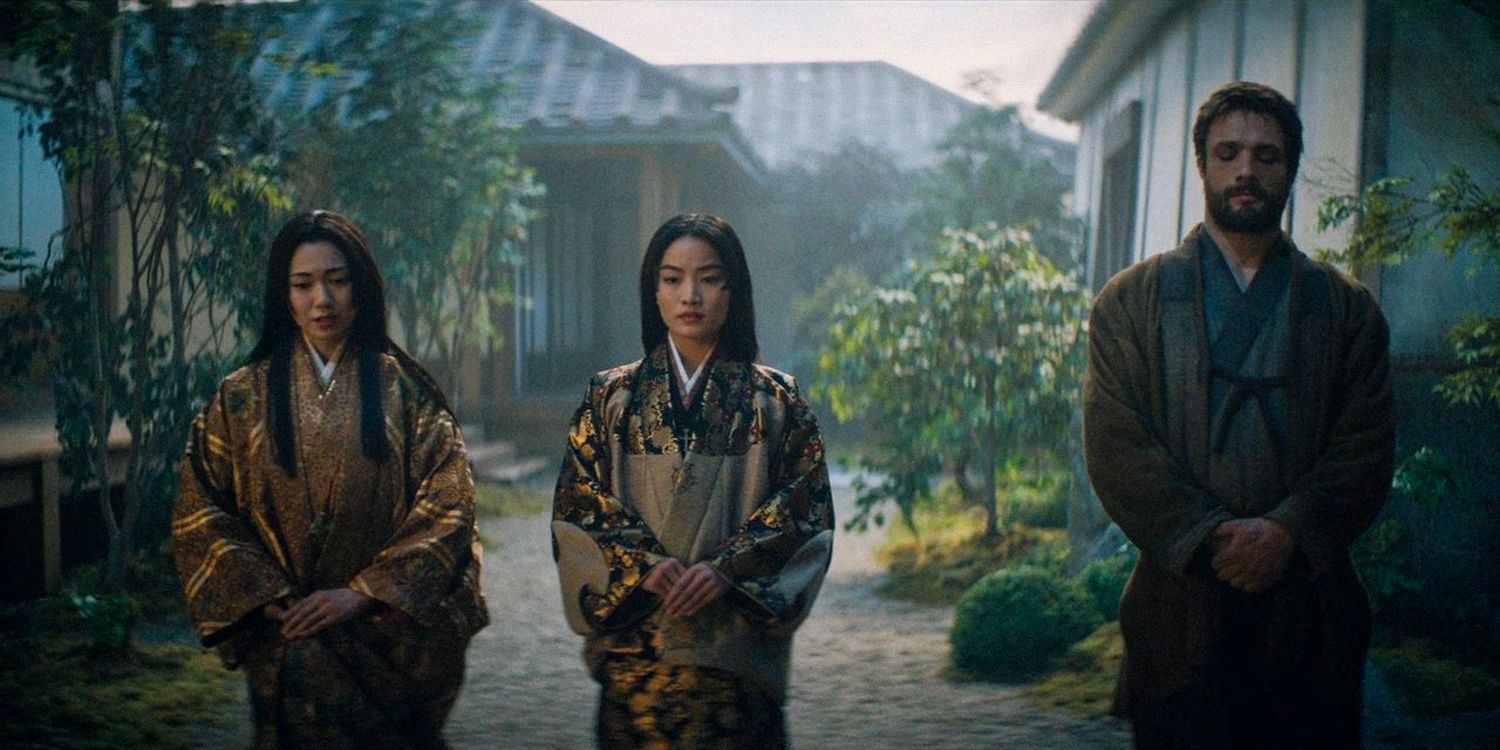
Since it is springtime in Japan, Yabushige calls Mariko’s poem bad because it uses symbols and themes of winter.
Yabushige, who doesn’t appear to have a poetic bone in his body, criticizes Mariko’s poem because of its thematic contradiction to the time of year. Since it is springtime in Japan, Yabushige calls Mariko’s poem bad because it uses symbols and themes of winter. He is mostly complaining about the fact that the poem does not align with the season that they are in, which he finds odd. Yabushige doesn’t have a problem with the poem itself outside of pointing out that it is misplaced because it is a poem about winter recited in the spring.
Yabushige clearly cannot detect the significance of Mariko’s poem to Ochiba and is quick to ridicule it for being out of season. While Yabushige is certainly deceptive, he’s evidently not too perceptive or inquisitive about the whole point of Mariko’s poem being about winter despite it being spring. No one, not even Ishido, pauses to contemplate the significance of that observation, and no one but Ochiba thinks anything more about it. Mariko’s poem was essentially cryptically cautionary of the events to come in Shōgun beginning with her tragic death at the end of episode 9.





